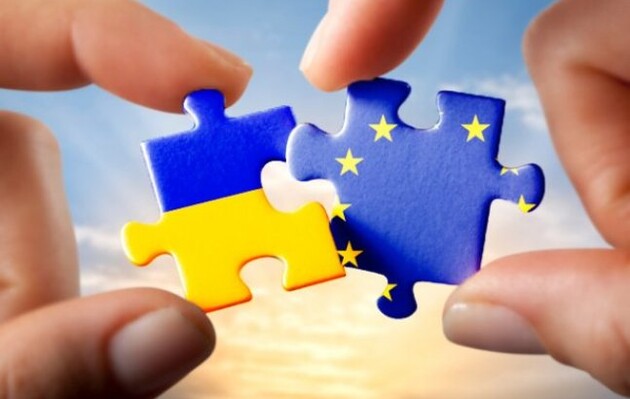Trade in the “transition” period: what “quota surprises” the EU is preparing for Ukraine
16 May 12:43
The abolition of the EU’s “economic visa-free regime” may cost the Ukrainian economy minus 3.5 billion euros per year. This was stated by the Chairman of the Verkhovna Rada Committee on Finance, Taxation and Customs Policy Danylo Hetmantsev, according to "Komersant Ukrainian"
In his post on Telegram, the MP shared insights into the terms of the “transition period” that will be offered to Ukraine regarding trade with the EU.
How does the EU plan to continue trading with Ukraine?
First, according to Danylo Hetmantsev, they want to divide the annual duty-free quotas into 12 monthly quotas.
“That is, if earlier, depending on the commodity item, duty-free supplies could stop in March, June, August or October, now the “meter” can be turned on monthly, and the stopcock can limit supplies conditionally on the 3rd, 5th or seventh day of the corresponding month. At first glance, it seems to be just arithmetic, but the conclusion and execution of contracts will definitely become more complicated and nerve-wracking,” the MP explained.
Secondly, according to Mr. Hetmantsev, the quotas themselves may be reduced.
According to insiders, corn producers will be hit the hardest, as the annual quota will be reduced to 650 thousand tons (for comparison, last year more than 14 million tons were shipped to Europe), meaning there will be virtually no duty-free trade.
The quota for sugar will be reduced by more than half – to 40.7 thousand tons (last year, total exports of the sweet commodity set a record for this century – almost 750 thousand tons, of which about 40% were supplied to the EU).
Other products, such as honey and poultry, will also be subject to restrictions.
How this may affect the Ukrainian economy
Last year, the supply of Ukrainian agricultural products to the EU brought Ukraine 13.1 billion euros.
According to expert estimates cited by Danylo Hetmantsev, due to the new trade conditions that may be introduced after the end of the “economic visa-free regime” on June 5, Ukraine may lose 3.5 billion euros in annual terms.
As the MP emphasizes, this is “quite a significant blow,” given that in 2025, all monthly merchandise exports will average 2.9 billion euros. Danylo Hetmantsev believes that it is almost impossible to compensate for such losses of agricultural exports in other markets.
Agricultural exports are crucial for the Ukrainian economy
The share of the agricultural sector in total exports is approximately 60%. And the European market is very important for Ukrainian farmers.
Last year, Ukraine was the third largest supplier of agricultural products to the European Union with a volume of 13.1 billion euros, after Brazil (17.1 billion euros) and the United Kingdom (16.6 billion euros). For comparison: The United States traded with the EU for €12 billion and China for €10 billion.
In June 2022, EU countries lifted restrictions on Ukrainian imports to support the Ukrainian economy during the war. The free trade regime was then extended twice more. It is set to expire on June 5. European farmers actively opposed duty-free trade with Ukraine, claiming that cheaper Ukrainian agricultural products were squeezing their products out of the market. The governments of Bulgaria, Poland, Hungary, Romania, and Slovakia demanded to limit Ukrainian exports.
On March 24, Ukrainian Finance Minister Sergiy Marchenko told the British Financial Times: “The European Union is our key trading partner, and therefore it would be very unprofitable for us if we [found ourselves] in the situation that we had before the war.”
On April 16, the Verkhovna Rada of Ukraine appealed to the European Parliament, the European Commission, the Council of the European Union, and the parliaments and governments of the EU member states to maintain autonomous trade measures after June 5, 2025.









